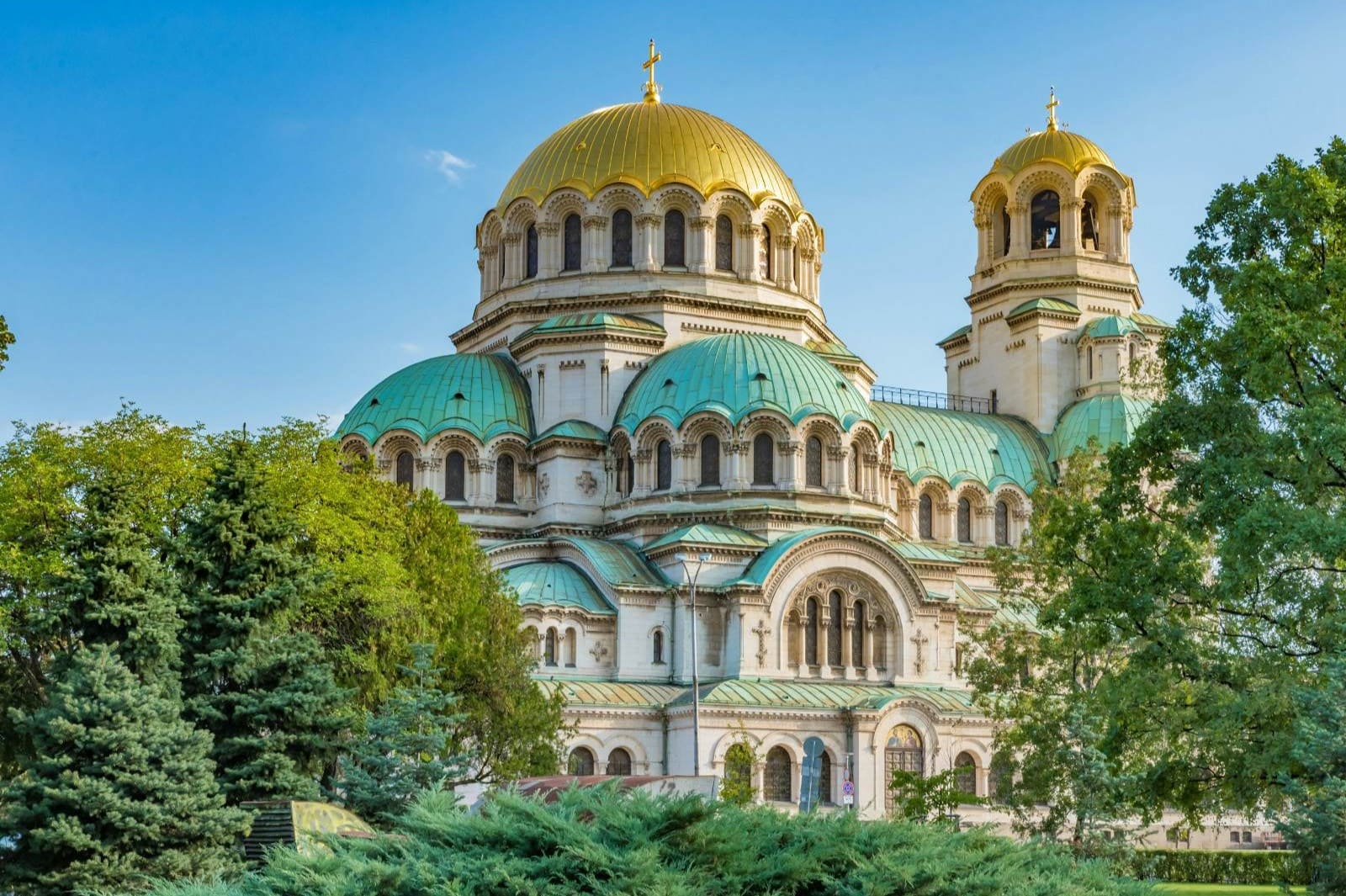
Bulgaria is a country rich in history, culture, and natural beauty. Nestled in the heart of the Balkans, it offers a unique blend of ancient traditions and modern life. Did you know that Bulgaria is one of the oldest countries in Europe, never changing its name since its establishment in 681 AD? Sofia, the capital, is one of the oldest cities on the continent, with a history spanning over 7,000 years. Bulgaria is also famous for its rose oil, which is a key ingredient in many perfumes worldwide. From the mystical Rila Monastery to the stunning beaches of the Black Sea, Bulgaria has something for everyone. Whether you're a history buff, nature lover, or foodie, this country will captivate your heart. Ready to learn more? Here are 30 fascinating facts about Bulgaria that will surprise and delight you!
Key Takeaways:
- Bulgaria's history dates back to ancient civilizations, including the invention of the Cyrillic alphabet and the influence of the Thracians. Its natural wonders and rich cultural traditions make it a unique and fascinating destination.
- From the Rila Monastery to the Rose Festival, Bulgaria's cultural heritage and cuisine offer a delightful mix of traditions and flavors. With a growing economy and unique facts, Bulgaria is a modern country with ancient roots.
Bulgaria's Rich History
Bulgaria, a country in Southeast Europe, boasts a history that spans thousands of years. From ancient civilizations to modern times, Bulgaria has seen it all.
- Bulgaria is one of the oldest countries in Europe, established in 681 AD.
- The Cyrillic alphabet, used by over 250 million people worldwide, was invented in Bulgaria.
- Plovdiv, Bulgaria's second-largest city, is one of the oldest continuously inhabited cities in the world.
- The Thracians, an ancient civilization, lived in what is now Bulgaria and left behind numerous treasures and tombs.
- Bulgaria was part of the Ottoman Empire for nearly 500 years, from 1396 to 1878.
Natural Wonders of Bulgaria
Bulgaria's diverse landscape includes mountains, plains, and a beautiful coastline along the Black Sea. Nature lovers will find plenty to explore.
- The Rila Monastery, a UNESCO World Heritage site, is nestled in the Rila Mountains and is a symbol of Bulgarian culture.
- Bulgaria is home to seven Rila Lakes, a group of glacial lakes that attract hikers and nature enthusiasts.
- The Danube River forms Bulgaria's northern border and is the second-longest river in Europe.
- Bulgaria has over 600 natural mineral springs, making it a popular destination for spa tourism.
- The Pirin National Park, another UNESCO World Heritage site, is known for its stunning landscapes and biodiversity.
Cultural Heritage and Traditions
Bulgaria's culture is rich with traditions, folklore, and unique customs that have been passed down through generations.
- The Martenitsa is a traditional Bulgarian adornment worn in March to welcome spring and bring good health.
- Nestinarstvo, or fire dancing, is an ancient ritual performed in some Bulgarian villages.
- Bulgarian folk music is known for its distinctive rhythms and harmonies, often featuring the gaida, a type of bagpipe.
- The Rose Festival in Kazanlak celebrates Bulgaria's famous rose oil industry every June.
- Kukeri, or mummers, wear elaborate costumes and masks to scare away evil spirits during the winter months.
Bulgarian Cuisine
Bulgarian cuisine offers a delightful mix of flavors and ingredients, influenced by its history and geography.
- Banitsa, a traditional pastry made with filo dough and cheese, is a popular breakfast dish.
- Shopska salad, made with tomatoes, cucumbers, onions, and feta cheese, is a staple in Bulgarian cuisine.
- Tarator, a cold soup made with yogurt, cucumbers, and dill, is perfect for hot summer days.
- Kavarma, a slow-cooked meat and vegetable stew, is a hearty and flavorful dish.
- Rakia, a fruit brandy, is Bulgaria's national drink and is often enjoyed with appetizers.
Modern Bulgaria
Despite its ancient roots, Bulgaria is a modern country with a growing economy and vibrant cities.
- Sofia, the capital of Bulgaria, is one of the oldest cities in Europe but also a bustling modern metropolis.
- Bulgaria is a member of the European Union, having joined in 2007.
- The IT sector in Bulgaria is rapidly growing, making it a hub for tech startups and innovation.
- Bulgaria has some of the fastest internet speeds in the world.
- The country is known for its affordable cost of living, attracting digital nomads and expats.
Unique Bulgarian Facts
Bulgaria has some unique and lesser-known facts that make it stand out.
- Bulgarians shake their heads to say "yes" and nod to say "no," the opposite of many other cultures.
- The Bulgarian Air Force was the first to use fighter aircraft in combat during the First Balkan War in 1912.
- Bulgaria is one of the world's largest producers of lavender oil.
- The country has a rich tradition of winemaking, with vineyards dating back to ancient times.
- Bulgaria's national football team reached the semi-finals of the 1994 FIFA World Cup, a significant achievement in the country's sports history.
Bulgaria's Rich Tapestry
Bulgaria's history, culture, and natural beauty make it a fascinating place. From ancient Thracian treasures to stunning landscapes, there's so much to explore. The country boasts nine UNESCO World Heritage Sites, showcasing its rich past. Its diverse geography includes mountains, plains, and a beautiful coastline along the Black Sea.
Bulgaria's traditions, like the Rose Festival and Kukeri, offer a glimpse into its vibrant culture. The country's contributions to the world, such as the Cyrillic alphabet, highlight its historical significance. Bulgarian cuisine, with dishes like banitsa and shopska salad, is a treat for the taste buds.
Whether you're interested in history, nature, or food, Bulgaria has something for everyone. Its unique blend of old and new makes it a must-visit destination. So, pack your bags and get ready to experience all that Bulgaria has to offer!
Frequently Asked Questions
Was this page helpful?
Our commitment to delivering trustworthy and engaging content is at the heart of what we do. Each fact on our site is contributed by real users like you, bringing a wealth of diverse insights and information. To ensure the highest standards of accuracy and reliability, our dedicated editors meticulously review each submission. This process guarantees that the facts we share are not only fascinating but also credible. Trust in our commitment to quality and authenticity as you explore and learn with us.


